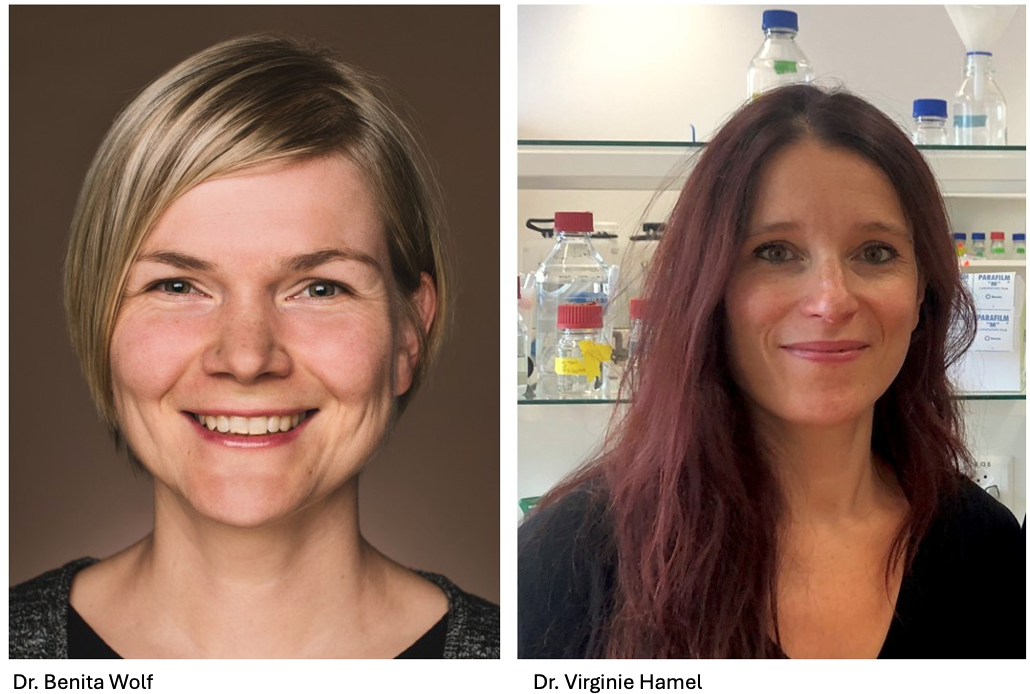Microscopy in translational immuno-oncology – Dr. Virginie Hamel (UNIGE) and Dr. Benita Wolf (CHUV)
Employing new visualization technologies will further the understanding of CAR-T cell therapy

The immune system plays a crucial role in inhibiting tumor growth. Adoptive cell therapy is a kind of immune therapy, where the cells of the patient’s own immune system are extracted, reprogrammed separately, and introduced back into the body to combat tumors in a very targeted manner.
More specifically, an adoptive cell therapy that uses chimeric antigen receptor T cells (CAR-T) has been transformative for people suffering from selected hematological malignancies (cancers that begin in the blood forming tissue) that are prone to relapse or are refractory. CAR-T therapies are being expanded to treat solid tumors as well. Unfortunately, there are significant toxicities associated with CAR-T cell therapy, especially since preclinical tools to evaluate CAR efficiency and safety can be inaccurate, time-consuming, and expensive.
The aim of this TANDEM project is to increase the precision and safety of engineered T cells by implementing new microscopy technologies to dissect and examine the interaction between the CAR-T cell and the tumor cell. They aim to make these technologies easy to implement so that they can routinely be used in a clinical setting. They will in turn provide insight on whether the therapy will be effective or generate toxicity. If successful, this new imaging tool will be used to improve both the patient’s prognosis and the patient’s overall quality of life during CAR-T treatment of hematological malignancies.

